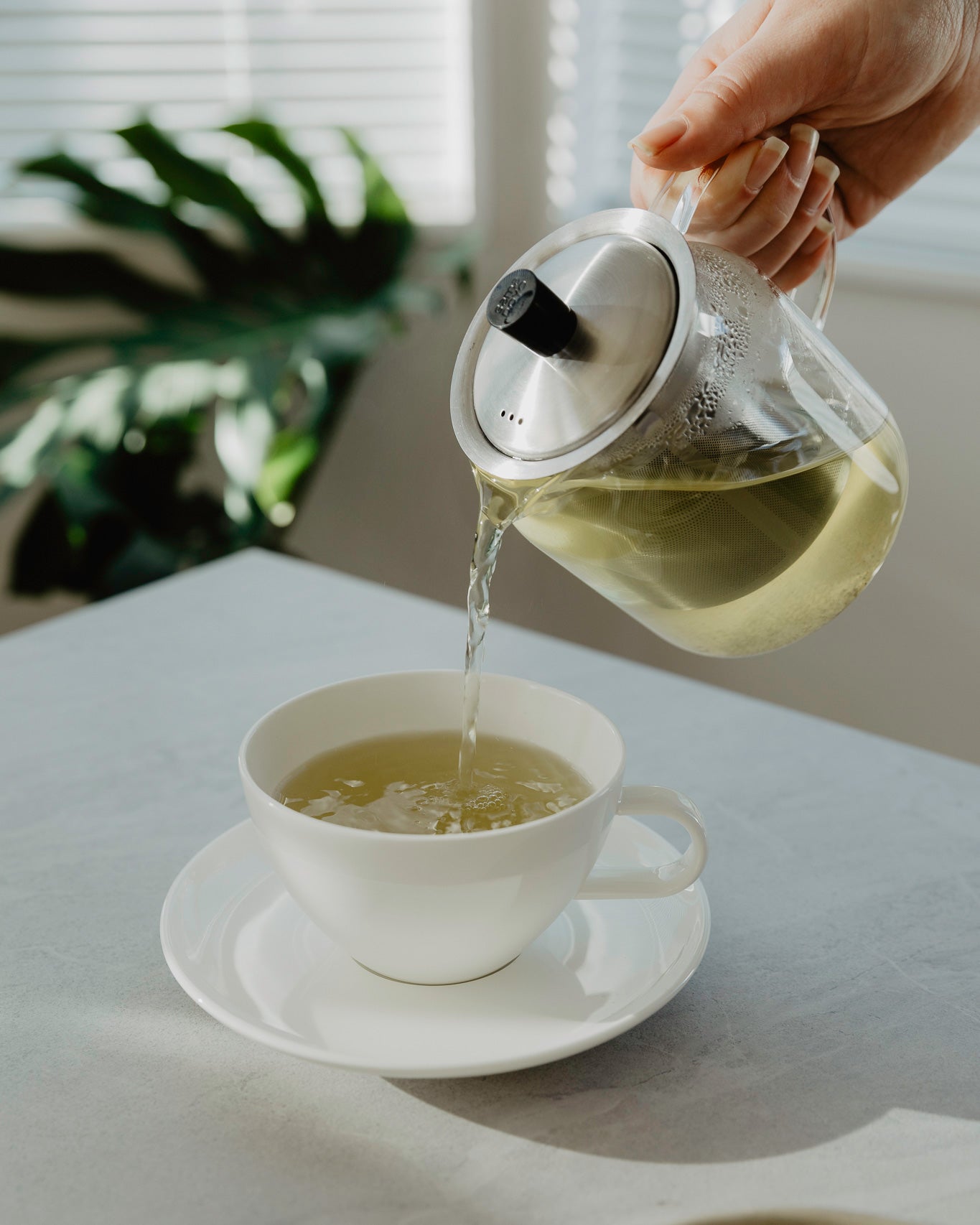Is Green Tea Good for You?

Green tea is touted to be one of the healthiest beverages on the planet, but don't just take our word for it; studies show that it's packed with all kinds of excellent benefits that your body and mind will thank you for.
There are many reasons why you might like to weave green tea into your daily rituals. It's earthy and refreshing to sip on, not to mention milder in the caffeine department when compared to coffee. So go on, pop the kettle on, because in today's journal post, we're answering all your green tea questions.
What is green tea?
Like black tea, green tea is derived from the leaves of the Camellia sinensis plant and comes in several varieties. When it comes to drying, the leaves are exposed to heat just after harvesting to stop oxidation, which is why the leaves retain their lovely green colour. Because it is processed less, it is said to contain more antioxidants and beneficial polyphenols than regular black tea.
What are the benefits of green tea?
Green tea has been enjoyed for thousands of years worldwide and is well recognized for its high antioxidant content and plethora of health benefits.
Studies show that green tea might help against various diseases such as cancer, obesity, diabetes, cardiovascular disease, and neurodegenerative diseases. This is thanks to it's major component, epigallocatechin-3-gallate (EGCG), which is demonstrated to have anti-inflammatory effects.
Green tea might also help to boost your metabolism and assist in weight loss due to the combination of catechins and caffeine. Research also suggests it can support oral health and help with bad breath.
We also love how it can support mental clarity and focus. Green tea contains several natural stimulants, including the amino acid L-theanine, which has a relaxing effect. Combined with its caffeine content, it is said to naturally increase mood-enhancing brain chemicals, including dopamine and serotonin. Studies show that the beneficial polyphenols of green tea might also help slow the effects of aging on the brain.
How much caffeine is in green tea?
Green tea contains less caffeine than black tea, with approximately 33 mg per cup versus 47 mg in black tea. This is roughly a third of the amount you would find in a typical cup of coffee.
If you are sensitive to caffeine or find that it affects your sleep, aim to finish your last cup by about 2pm to ensure enough time to process the caffeine before bedtime. Check out our recent journal post here if you're looking for more information about the caffeine content in tea. 
How should I drink my green tea?
The quality of tea, temperature of water used, and steeping time significantly affect the level of antioxidants in your tea. It's best to allow your boiled water to cool slightly before pouring over your tea. Alternatively, add a dash of cold water to your mug before boiling water. Steep your tea for no more than 3 minutes to make the most of its lovely benefits.
Green tea is typically enjoyed hot but is also lovely in summertime served iced with some slices of lemon and fresh mint. It can also be slow-brewed at room temperature for a milder tea intended for sipping throughout the day.
How much should I drink each day?
After deep diving into the research, we've discovered that the amount of tea required for health benefits varies somewhat among studies. Enjoying at least 3-5 cups of green tea daily seems to work well, but the optimal amount may vary from person to person. The good news is that those who enjoy at least one cup per day still experience tremendous benefits compared to those who don't drink green tea.
The bottom line
All in all, this health-boosting beverage might not be a magic cure-all. However, research highlights many tremendous benefits that are simply too good to ignore.
By now, you might be looking for some lovely green tea to add to your repertoire? We think you'll love our brand new Organic Sencha from Zhejiang, China's leading green tea-producing province. It's smooth, refreshing, and bright in flavour. Available now online and in store.






